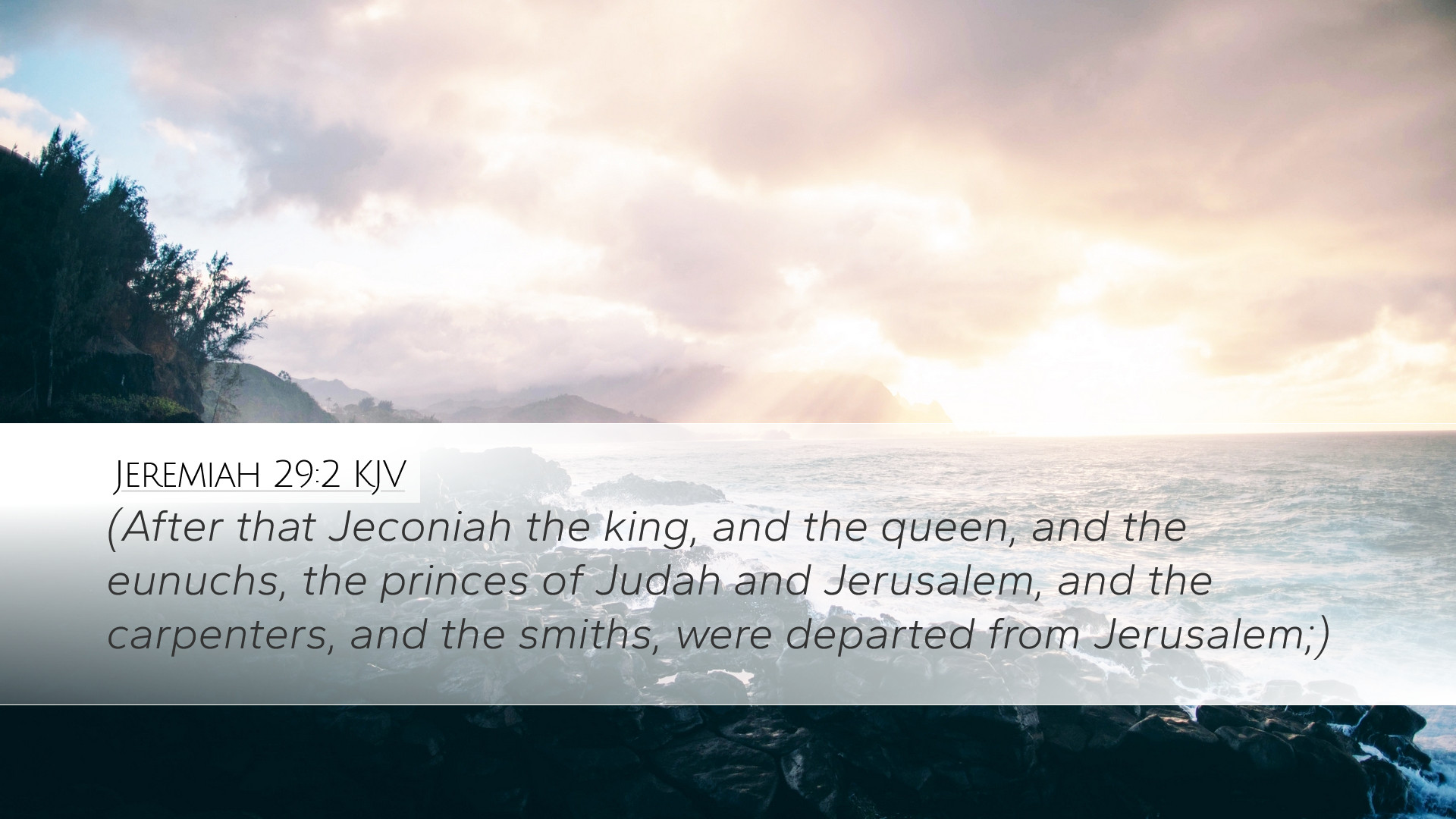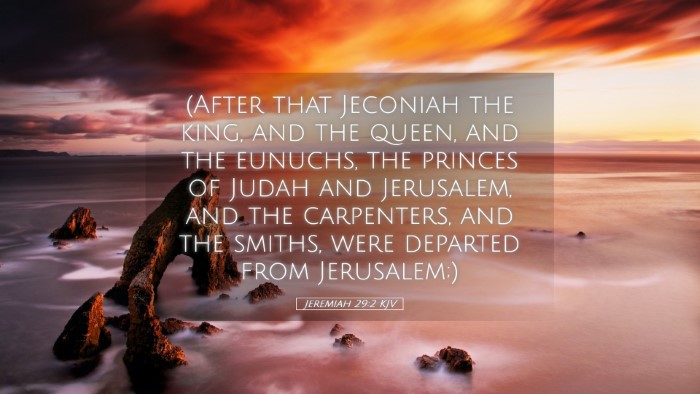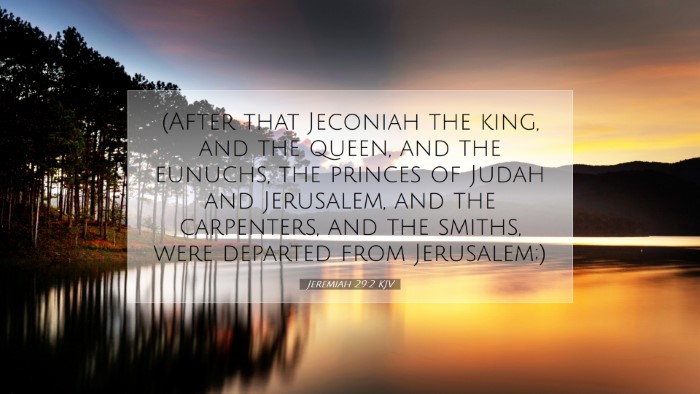Commentary on Jeremiah 29:2
Verse: "Jeremiah sent from Jerusalem unto the residue of the elders which were carry away captives, and to the priests, and to the prophets, and to all the people whom Nebuchadnezzar had carried away captive from Jerusalem to Babylon."
Introduction
The verse captures a significant moment in the history of Israel, where the prophet Jeremiah communicates with the exiles in Babylon after the conquest of Jerusalem. This passage opens a window into the understanding of prophecy, divine guidance, and the theological implications of living as exiles.
Contextual Background
Understanding the context of Jeremiah 29:2 is vital. The events transpire after the Babylonian siege of Jerusalem, where many prominent figures were exiled. This context is crucial to grasp the prophetic significance of Jeremiah’s message.
Historical Context
Jeremiah, known as the "weeping prophet," penned this letter around 594 BC during the Babylonian captivity. The exiles faced despair, and fear of the future was rampant among them. Jeremiah’s communication serves not only as a message of accountability but also of hope.
The Role of Jeremiah
Jeremiah’s role as a prophet is pivotal. He acts as a mediator between God and His people, articulating divine messages in their dire circumstances. His commission emphasizes the continuity of God's covenant with Israel, despite their current exile.
Message to the Exiles
Jeremiah addresses the elders, priests, and prophets among the exiles, indicating the importance of spiritual leadership in times of crisis. His leadership in communicating God’s message offers guidance for maintaining faith and communal identity amid adversity.
Theological Implications
This verse highlights key theological themes, including the nature of God's sovereignty, the purpose of exile, and the divine plan for restoration.
Sovereignty of God
Matthew Henry discusses God's sovereignty over nations and individuals, asserting that the exile was part of His divine plan, as a means of discipline for continued disobedience. Thus, even in despair, God remained in control.
Exile as Purposeful Discipline
Albert Barnes posits that God’s discipline was not merely punitive but corrective. The exiles were called to reflect, repent, and regroup as His chosen people. The exile was meant to teach them reliance on God’s faithfulness.
Hope of Restoration
Adam Clarke emphasizes the hope encapsulated in Jeremiah’s message, suggesting that God preserves His people even in the worst circumstances. Jeremiah's letter foreshadows eventual return and restoration, reinforcing God’s everlasting covenant with Israel.
Lessons for Today
For modern pastors, students, and theologians, Jeremiah 29:2 serves as a profound reminder of God’s guidance and purpose during trials. It encourages faithful leadership, persistence in faith, and the assurance of hope and restoration in God's plan.
- Faithful Leadership: Spiritual leaders are called to communicate God’s messages faithfully, providing hope and direction.
- Perseverance in Trials: The reminder of God’s faithfulness should embolden believers to endure hardships, trusting in His sovereign plan.
- Hope of Restoration: God’s paths are often mysterious, yet they lead to redemption and restoration, prompting believers to remain steadfast.
Conclusion
Jeremiah 29:2 encapsulates a transformative period in Israel’s history and serves as a theological beacon for understanding God’s purposes amidst suffering. It implores believers not to lose heart but to remain anchored in hope, reflecting on God's everlasting covenants, compassion, and sovereignty.


